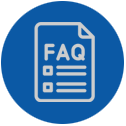Social media have had a significant impact on how we interact with each other. People routinely learn about major events online. There is real time information that keeps people informed, but there are often cases of misinformation. People also have the opportunity to post information and comment online, and discussion comments range from thoughtful and constructive to irrational rants and vicious name calling. On balance, what are the benefits of this online world?
I recently read an issue of the Smithsonian magazine, and there was an article about Jaron Lanier, a major player in the development of the online environment we currently enjoy. In the past few years he has had second thoughts about the way everything has played out.
Lanier wrote an article in 2006 called Digital Maoism: The Hazards of the New Online Collectivism. In the article he argues that the anonymity of many comments on the web could (and has in some cases) lead to a new sort of mob rule.
The Smithsonian Article describes an example:
“At last we come to politics, where I believe Lanier has been most farsighted—and which may be the deep source of his turning into a digital Le Carré figure. As far back as the turn of the century, he singled out one standout aspect of the new web culture—the acceptance, the welcoming of anonymous commenters on websites—as a danger to political discourse and the polity itself. At the time, this objection seemed a bit extreme. But he saw anonymity as a poison seed. The way it didn’t hide, but, in fact, brandished the ugliness of human nature beneath the anonymous screen-name masks. An enabling and foreshadowing of mob rule, not a growth of democracy, but an accretion of tribalism.
It’s taken a while for this prophecy to come true, a while for this mode of communication to replace and degrade political conversation, to drive out any ambiguity. Or departure from the binary. But it slowly is turning us into a nation of hate-filled trolls.”
At UCT we have always tried to foster a sense of community among our members, whether in face-to-face interactions or online.
What do you think? Is an ongoing civil online community possible? Will anonymous comments ultimately destroy any online community? Is the lack of civil debate regarding political issues primarily a result of web anonymity? What can be done to avoid the mob rule described by Lanier?
 Get Covered
Get Covered
 US Benefits
US Benefits
 Doing Good
Doing Good
 FAQs
FAQs
 News
News